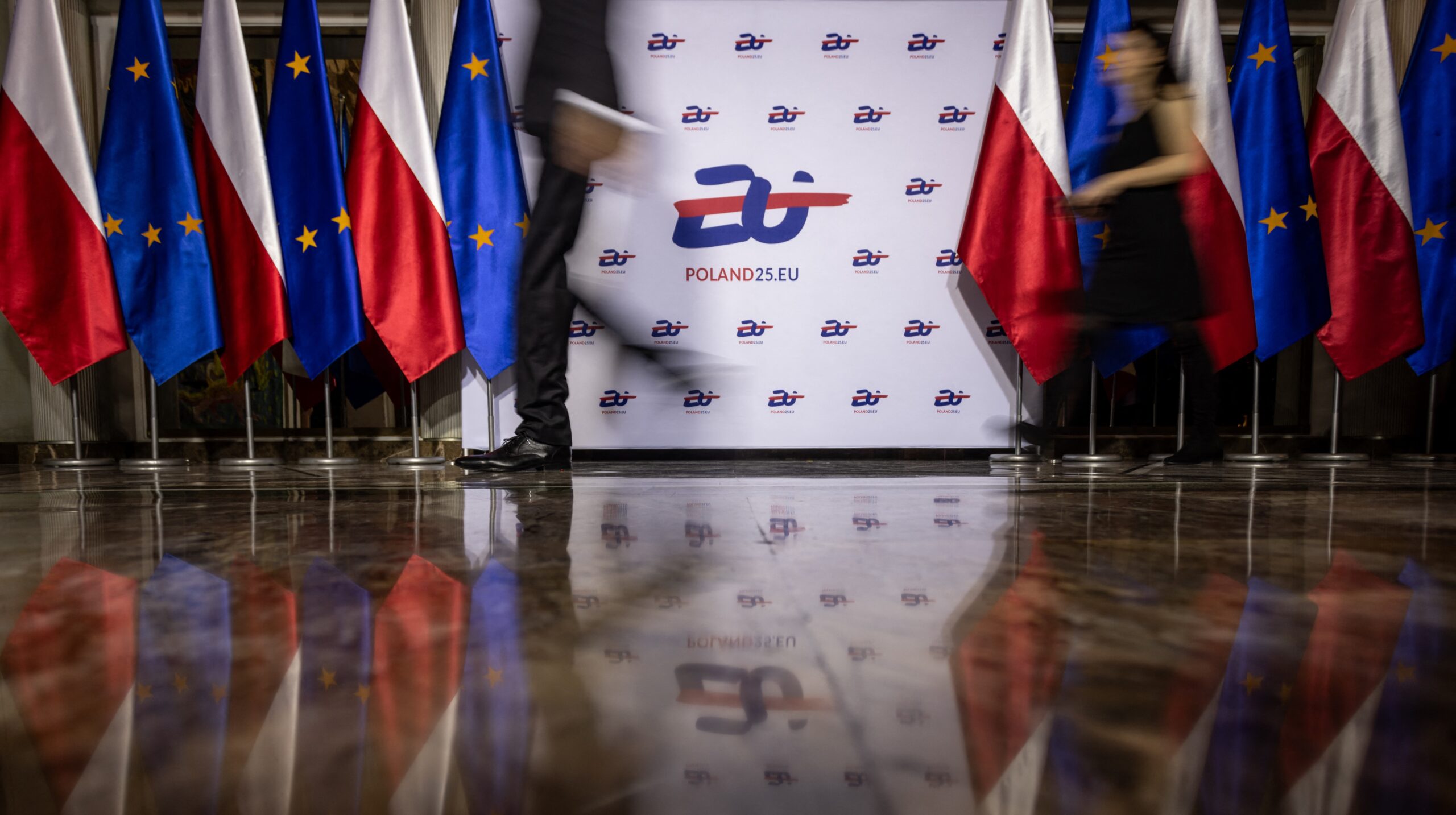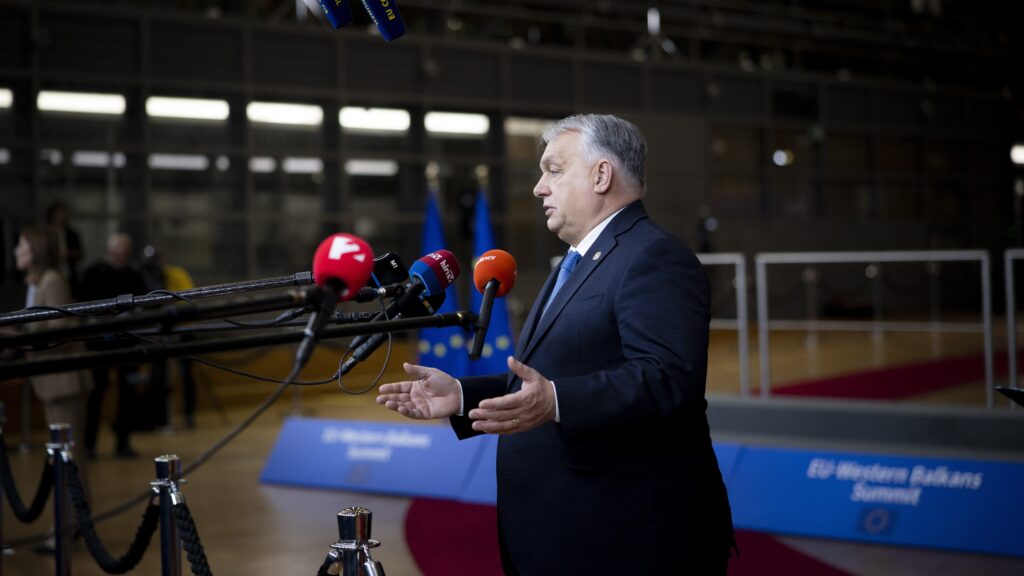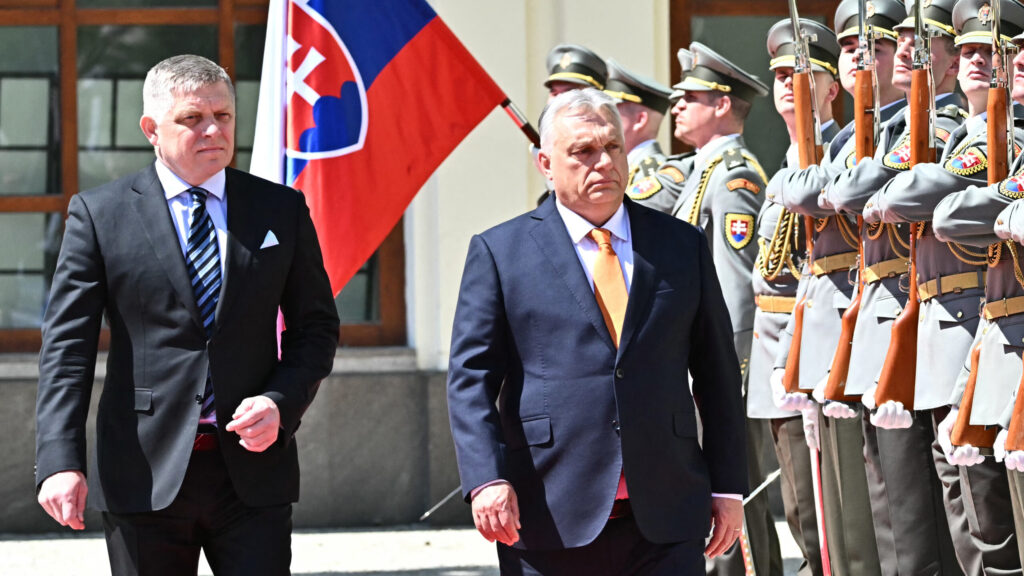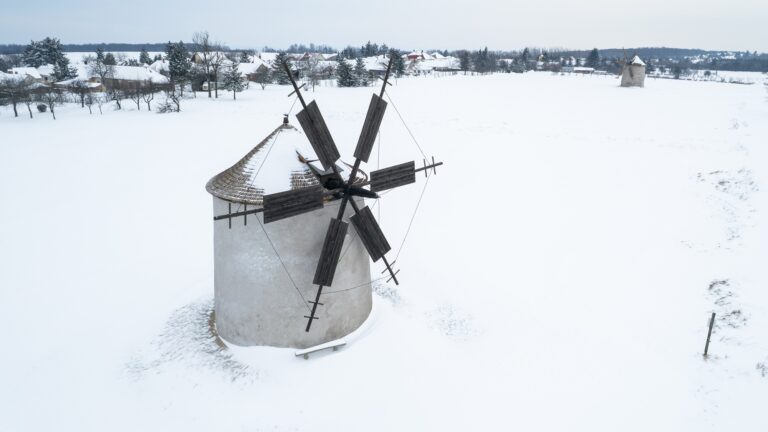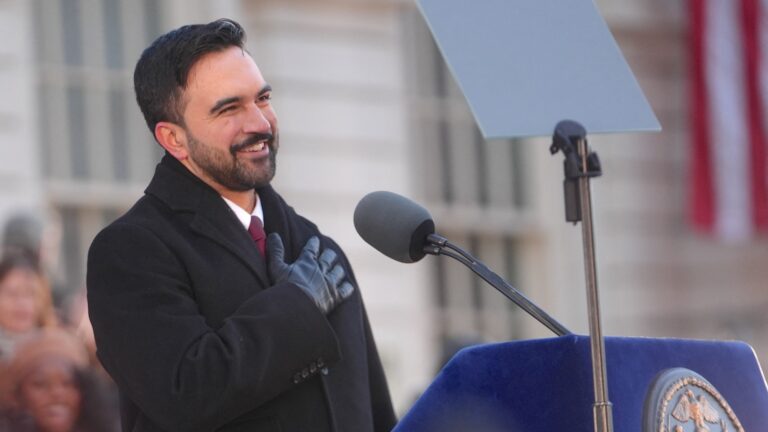The following is a slightly adapted translation of an article written by Ákos Péter Mernyei, a research fellow at the Europe Strategy Institute of the University of Public Service, originally published on the Five Minutes Europe blog of Ludovika.hu.
It was not only a new Presidency of the Council of the European Union that started on 1 January, but also a new trio of Presidencies. The first member of the new team is Poland, which now holds the baton and will be responsible for organizing the European Union’s political and legislative activities over the next six months, including the traditionally most important area of energy policy.
Energy policy has become perhaps the most important policy of our time. The energy demand of our world today is greater than ever before. Without energy, there is no modern society and no modern economy. However, the European Union is not energy-rich—in recent decades, we have imported most of the fossil fuels needed for EU industrial production from third countries. This was a significant exposure for Europe but is still geological–geographical, or if you like, physical issue, a given factor—namely, there was hardly any reasonable and marketable alternative to natural gas (and oil) available through traditional pipeline transport, not only in Hungary but also in Slovakia or Germany. However, the Russo–Ukrainian war that has been going on for almost three years has shown that energy dependence, precisely because of its fundamental importance, poses a serious risk to the security of supply and, consequently, to the fundamental security policy of the EU. Cheap energy has become insecure, secure energy and technologies expensive, and energy has gone from mere EU policy to high policy.
Today, everyone is looking at how to strengthen Europe’s energy security without at the same time, from an economic–financial point of view, cutting off natural gas as an energy carrier, and in particular Russian gas, as that would be a death sentence for the European economy, which for several reasons, is seriously ailing.
‘Cutting off natural gas as an energy carrier, and in particular Russian gas, would be a death sentence for the European economy’
The issue was also addressed in detail in the Letta and then the Draghi reports and the Hungarian Presidency also put the issue on the agenda at the Energy Council last October. At the meeting, there was a consensus that the problem of high energy prices is part of our daily reality and that a range of investments are urgent and necessary to address it. This is therefore the state of play in January 2025.
The joint programme of the incoming Polish–Danish–Cypriot Presidency trio has organized its priorities under three substantive headings (a strong and secure Europe, a prosperous and competitive Europe, and a free and democratic Europe). The first two of these emphasize the importance of energy policy in several points. The programme sets as its objectives the reduction of the EU’s external dependencies and the building of a true Energy Union, with the digital and green transition as its main instrument. The latter, according to the trio, will strengthen Europe’s energy sovereignty. They see the way to achieve this as strong electrification (using net-zero and low-carbon technologies), developing electricity networks, storage capacity, and interconnectors, completing energy market integration, and reducing the administrative burden that comes with energy infrastructure development.
The first member of the Polish team to start the Presidency trio has chosen the slogan ‘Security, Europe!’ as its own motto, and will carry this line of thought through its so-called ‘Presidency priorities’. Prime Minister Donald Tusk said in his speech on 1 January that he sees his task as convincing all 27 EU Member States that Europe can continue to be the safest and most stable place in the world.
And certainly, one of the security objectives is energy security. This is all the more welcome as Europe has been struggling for years with energy poverty and its threat, high energy prices, the issue of diversification of sources, and the difficulties of greening. It is in this context that the Budapest Declaration, finalized by the Hungarian Presidency and with a specific section on energy, also stated that the political leaders of the Member States want to create a true Energy Union, which means a fully integrated and interconnected energy market on the one hand, and the provision of affordable and clean energy to citizens and businesses on the other. The political objectives are therefore clear, agreed upon, and, very importantly, fixed.
Let’s see how Poland plans to move forward!
The Polish Presidency programme, under the heading ‘TTE — Transport, Telecommunication, and Energy’, takes energy security in its broadest sense: it aims to address it as a political priority, not just a policy priority. Poland aims to prepare Council conclusions on a European energy security strategy in the next six months and states that ‘energy security’ includes access to affordable energy and new technologies, but also climate and environmental protection rules.
‘Poland aims to prepare Council conclusions on a European energy security strategy in the next six months’
The main objective of the programme in this respect is to highlight the need to fully divest from fossil fuels from Russia. The Presidency intends to achieve the energy transition by supporting the green and energy security development industrial segments. It is particularly noteworthy that the Polish Presidency stresses the need to ensure affordable energy not only for the population but also for energy-intensive industries, without which, the international competitiveness of the EU industry cannot be sustained, says the programme. According to the Presidency, an important part of the new energy security architecture is to strengthen the physical security and cyber security of the EU’s strategic infrastructure. In addition, it also stipulates the need to ensure access to critical raw materials—something in which, let us add, Europe is once again not well placed.
Besides, the Polish Presidency also aims to make the European economy more competitive with its international rivals. In this context, the programme reiterates that it intends to achieve this by supporting the development of clean and new technologies, which, as in the Draghi report, will be implemented not only through public but also through private funding.
The energy policy part of the programme states, too, that it will give priority to strengthening solidarity with Ukraine and support for the Ukrainian energy sector, and will seek to help align Ukrainian energy legislation with EU standards. The latter element is expected to (also) significantly assist Ukraine’s accession to the EU.
The energy policy part of the Presidency programme shows a strong determination, but the big question is what the Poles can deliver in the next six months. It is very difficult to judge at the moment, as the Commission’s so-called ‘100-day programme’ has not yet (officially) been published. However, according to press reports, the second von der Leyen Commission will present a major plan on sustainable technologies, strategic autonomy, and competitiveness in a few weeks. And an improved version of the Green Deal, the so-called ‘Clean Industrial Deal’, is expected to be a key element of the package, too…
‘The energy policy part of the Presidency programme shows a strong determination, but the big question is what the Poles can deliver’
Nevertheless, the political direction of the presidency is clear at both the trio and the Polish levels: full energy independence from Russia and strengthening the European green economy through public and private funding, hoping this will lead to low energy prices and a competitive European industry. We will know more about whether this is in line with the Commission’s vision when the latter publishes its detailed work programme.
Either way, the question of whether we are going in the right direction at the right pace remains open. For although the proposal to turn off the gas tap (that is, to end dependency) may seem simple, the problem is what would happen next, and where European consumers (industry and the public) would get affordable energy—a question that is, or should be, a very serious concern. Both the Commission and the Presidencies must take into account that both the separation and the transition are time-consuming processes, that the way in which energy is supplied is partly geographical and partly historical, and that the different Member States have different margins for manoeuvre in this respect. Poland and Germany, for example, have substantial coal reserves on their own territory, but Hungary or Slovakia do not have such a ‘security margin’. It is therefore of the utmost importance that security of supply risks are assessed in all Member States before any decision is taken to phase out Russian energy. It is obvious that the implementation of an Energy Union is in Europe’s inescapable strategic interest, but this is an area and a subject whose rules should be carved out not with an axe but with a scalpel, lest in the attempt we do more harm than good. Hopefully, Brussels and Warsaw will see this too and, what is more, take it into account.
Related articles:
Click here to read the original article.

